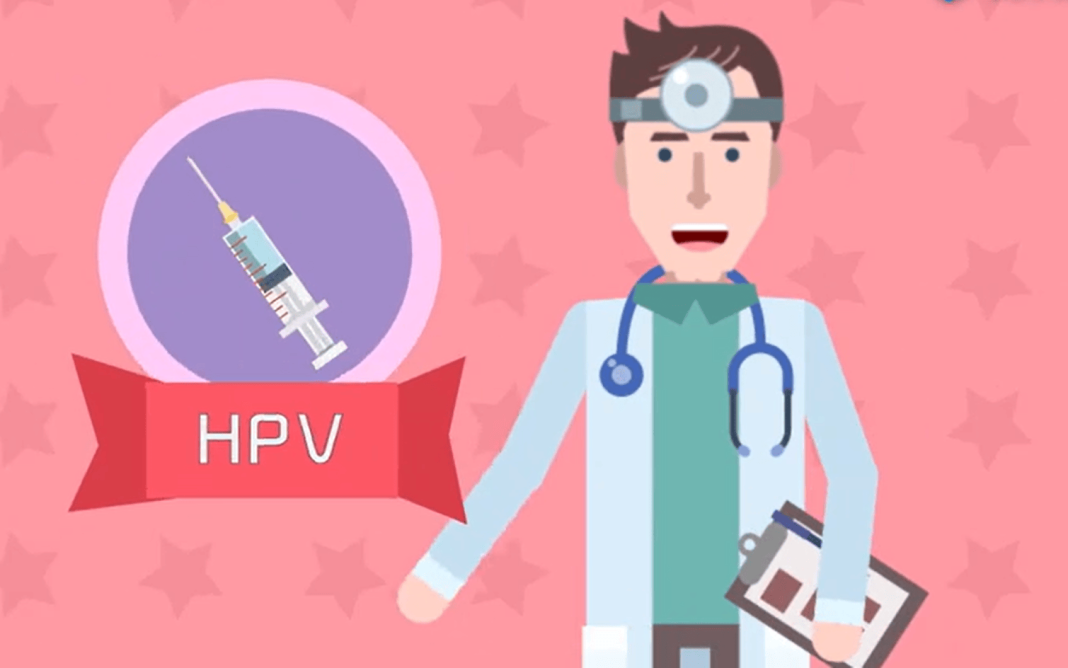▲ Reference image: Historically, the development of male HPV vaccines in the medical community has been relatively lagging behind. Photo/New Beijing News Video screenshot
According to the Health Times report, the Guangxi Zhuang Autonomous Region Disease Prevention and Control Center will conduct a Phase III clinical trial of HPV vaccines for males in September, involving a domestically produced nine-valent vaccine that will be followed up on 500 trial participants over a period of 6 years. Many netizens are looking forward to males being able to receive the human papillomavirus (HPV) vaccine domestically.
On August 25th, several clinical experts interviewed by the People’s Daily Health Client pointed out that from the perspective of collective immunity and disease prevention, it is essential for males to receive HPV vaccines. Once adaptation verification is completed domestically, the administration of HPV vaccines to males is inevitable.
Since HPV vaccines primarily prevent cervical cancer, which is considered a “female-specific disease,” HPV vaccines have been regarded as exclusive to females. The emergence of information on Phase III clinical trials of male HPV vaccines is not only refreshing but has also sparked discussions on its necessity, attracting extensive public attention.
In addition to the prevailing unilateral views on human papillomavirus and HPV vaccines in society, insufficient understanding of such vaccines and varying local conditions have resulted in some unilateral phenomena in the development and promotion of such vaccines. In particular, the development of male HPV vaccines has been relatively lagging behind, with HPV vaccines currently available on the market only suitable for females, hence reinforcing the label of HPV vaccines as “female-exclusive” objectively.
However, from the perspective of cancer prevention, HPV vaccines should be shared by both sexes. The role of HPV vaccines is to reduce the chances of human papillomavirus infection, significantly lowering the incidence of cancer caused by this virus. According to a study published in an international cancer journal in 2017, human papillomavirus is associated with various human cancers, with approximately 87% of HPV-related cancers occurring in females and the remaining 13% in males.
Indeed, countries such as the United States, the United Kingdom, Australia, Japan, Hong Kong, Macau, and mainland China have already allowed the administration of nine-valent HPV vaccines to males. Therefore, there is an urgent need to address the corresponding shortcomings.
Aside from causing cancers such as cervical cancer, HPV infections can also lead to diseases such as genital warts. Many of these diseases can affect both men and women, with some diseases having higher incidence rates in males. For instance, reduced sperm viability is specific to males. When viewed from these perspectives, the administration of HPV vaccines to males is entirely justified.
Furthermore, even for the purpose of preventing cervical cancer, it is crucial to emphasize the shared responsibility of both males and females. Cervical cancer is caused by human papillomavirus, primarily transmitted through sexual contact, making it one of the most common pathogens in sexually transmitted diseases.
While females can reduce the risk of HPV infection by receiving HPV vaccines, this does not negate the possibility of males transmitting the virus to females through sexual contact. Thus, the prevention of sexually transmitted diseases requires cooperation from both males and females. Emphasizing only the responsibility of females while neglecting that of males can be detrimental to preventing related diseases. Allowing males to receive HPV vaccines will enable both sexes to collaborate effectively in addressing the challenges posed by such diseases.
Many believe that since both males and females can contract human papillomavirus, the existing HPV vaccines in the market could potentially be used for males as well, thus reducing significant research and development costs. However, medicine is an empirical science, and there are gender differences in immune responses, tolerability, vaccine adverse reactions, etc. Therefore, HPV vaccines for males should undergo male clinical trials.
There is still ample room for the development of male HPV vaccines. To achieve the ultimate goal of completely eradicating cervical cancer, many regions in China are vigorously promoting free HPV vaccination for eligible females. Some have suggested that free HPV vaccinations should also be widely available for eligible males.
At present, such suggestions seem reasonable, as HPV vaccines can prevent far more diseases than just cervical cancer, and preventing cervical cancer is by no means solely the responsibility of females. Thus, male clinical trials of HPV vaccines represent just the first step, and exploration of HPV vaccines can extend to broader areas.
Conducting clinical trials is not solely the responsibility of pharmaceutical companies and research institutions but also requires widespread social understanding and cooperation. Breaking the inherent notion that the vaccine is “female-exclusive” and encouraging more males to actively participate in clinical trials can help achieve the intended goals of these trials sooner. Through this, the whole society can take another significant step towards the prevention of diseases caused by human papillomavirus.
Author / Tang Chuanyan (Medical Worker)
Editor / Ma Xiaolong
Proofreader / Wang Xin


